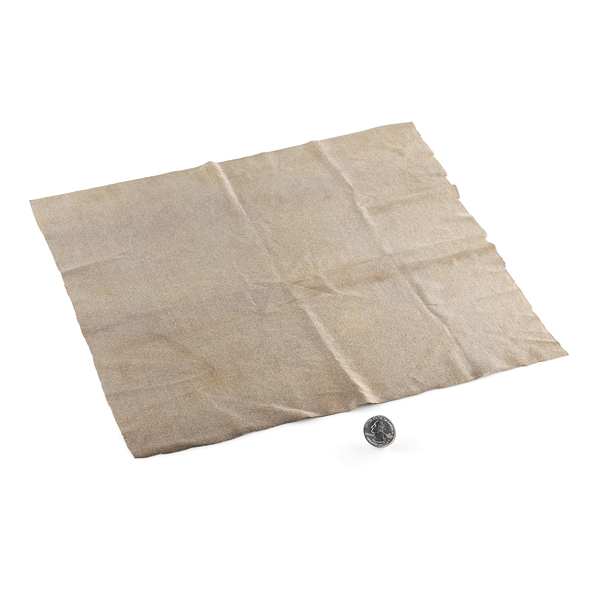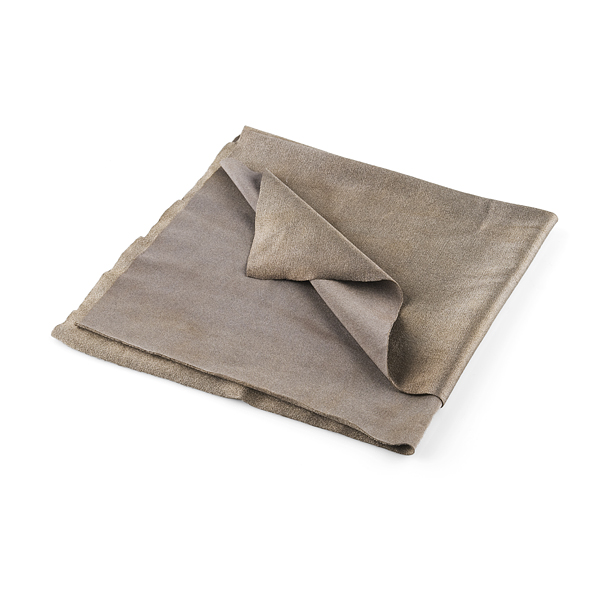Conductive Fabric - 12"x13" MedTex130
This is a conductive knit fabric for use in e-textiles. It is silver-plated nylon that is stretchy in both directions. It is highly conductive with a surface resistivity of < 1 ohm/sq. This is a great add-on to any LilyPad project. Medtex 130 Ag Nylon stretch. It is a bit thinner than our Medtex 180.
If you aren't sure what to do with conductive fabric, you have to check out the Wearable Toy Piano, as well as some of the other cool Instructables.
Replaces:DEV-09770
- It's conductive!
- Easily sew electronic features into your next project
- Great for use with the LilyPad
- 12 x 13" (304.8 x 330.2 mm)
Comments
Looking for answers to technical questions?
We welcome your comments and suggestions below. However, if you are looking for solutions to technical questions please see our Technical Assistance page.
Customer Reviews
No reviews yet.



I found this tutorial interesting.
How to make a stylus
I’ve been making styluses for years with this fabric and my customers are always happy. It’s stretchy and tough. It withstands the grease, abrasion and last a couple years on its function.
Visit me at www.iwhateverstylus.com
I use the MedTex130 conductive fabric for my Stylus Socks and it works gr8! See: http://bit.ly/shapeshop
It even got featured at the Cult of Mac: http://www.cultofmac.com/conductive-material-paintbrush-socks-for-painting-on-your-ipad/63042
Is this fabric washable ? Can't find anything about it in the datasheet.
If the fabric is stretched, does it changes the value of the resistance?
Yes, I sliced the fabric into 1" strips and the resistance from end to end changes from 25Ω unstretched to 10Ω stretched to 140% it's original length. Stretching it more (to 180% original length) reduces the resistance to about 8Ω. (posting incase others are interested)
Odd...the data sheet you guys provided gives 5Ohm/sq...did you guys change the part and not update the description?
I know the one guy said that it works with ipad/iphone capacitive screens, but will this work with any capacitive screen? (such as a G1, or Samsung Galaxy)
Yes. This fabric will work with any capacitive screen.
1 ohm per square inch is alot more resistive than 1 ohm per square meter. (or even foot) From the description I cannot tel which unit it applies to. The dimensions are reported in inches, but that cannot imply the same.
That's not how Ohm/sq works. See Steamcastle's comment above.
Er, 1 ohm per square what?
what ever you like.
if you have a piece there is an inch once by an inch, then you will have one ohm resistors from one side to the other if if now since only half inch, you get 2 ohms because ratio is one to two (or is it two to one).
do you understand now? :)
Er, yes. My bad.
For anyone still confused: assuming you connect uniformly to the ends of a rectangular resistor, the resistance is proportional to the length and inversely proportional to the width (just like series and parallel resistors, respectively) ? so the scale doesn't matter; this material is 1 ohm per square anything.